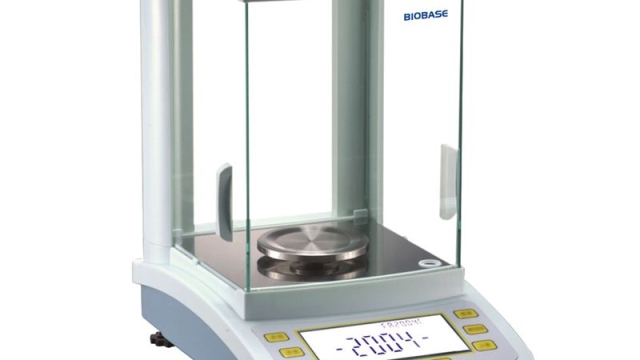
In the world of scientific research and analysis, precision is paramount. Laboratory analytical balances are essential tools for achieving accurate measurements in various experiments and processes. These high-precision instruments not only ensure reliable data but also significantly impact the outcomes of research projects. Given their importance, maintaining these balances is crucial for any laboratory aiming to uphold high standards of quality and accuracy.
At W&J Instrument, a renowned manufacturer specializing in electronic balances, moisture analyzers, viscometers, and other laboratory instruments, we understand the complexities involved in operating and maintaining analytical balances. Proper care and maintenance can extend the life of these devices and enhance their performance. In this article, we will share expert tips that will help you ensure your analytical balances remain in top condition, providing reliable measurements for all your laboratory needs.
Understanding Analytical Balances
Analytical balances are crucial instruments in laboratories that require high precision for weighing substances, typically to the nearest milligram or even microgram. The design of these balances features an enclosed draft shield that helps eliminate the effects of air currents, ensuring accurate measurements. The sensitivity and precision of analytical balances make them indispensable for applications in pharmaceuticals, chemistry, and research labs where exact formulation is critical.
These balances are equipped with advanced technologies that enhance their functionality. For instance, many models feature internal calibration systems that automatically adjust the balance to account for temperature changes and other environmental factors. This self-calibration ensures that the readings remain consistent over time, which is particularly important in experiments where reliability is paramount. The integration of user-friendly interfaces and digital displays also simplifies the weighing process, making it accessible to users with varying levels of experience.
In selecting an analytical balance, it is essential to consider factors such as capacity, readability, and the specific requirements of your laboratory applications. W&J Instrument is a professional manufacturer and seller of various electronic balances, providing a variety of models that cater to different needs. By choosing the right analytical balance, laboratories can enhance their productivity, achieve better accuracy in their measurements, and effectively maintain compliance with industry standards.
Importance of Calibration
Calibration is a critical process that ensures the accuracy and reliability of laboratory analytical balances. These instruments are designed to measure weight with high precision, and even the smallest deviation can lead to significant errors in experiments and results. Regular calibration helps maintain the integrity of measurements, ensuring that the data generated is trustworthy and meets the necessary quality assurance standards.
Waterproof Scales for Laboratories
In a lab setting where precision is paramount, incorrect measurements can lead to flawed research outcomes, impacting everything from product formulation to regulatory compliance. By performing routine calibration, laboratories can detect any discrepancies in balance readings and take corrective measures before these errors influence critical decisions. This process not only safeguards the quality of the work but also enhances the credibility of the laboratory.
Additionally, proper calibration can extend the lifespan of the analytical balance. By addressing any issues before they escalate, lab managers can prevent more significant malfunctions that may require costly repairs or replacements. Investing time and resources in regular calibration is essential for maintaining high standards in laboratory practices and optimizing the overall efficiency of analytical operations.
Routine Maintenance Tips
To ensure optimal performance of your laboratory analytical balances, regular maintenance is essential. Start by keeping the balance clean and free from dust and contaminants. Wipe the balance with a soft, lint-free cloth regularly, and use a mild detergent if necessary. Pay special attention to the weighing pan and surrounding areas, as residue can affect accuracy. Avoid using harsh chemicals that could damage the balance’s components.
Calibration is another critical aspect of maintenance. Regularly calibrate your analytical balance according to the manufacturer’s recommendations to ensure precise measurements. Depending on usage, this may be required daily or weekly. Utilize certified calibration weights for accuracy and document each calibration session to track any potential drift in measurements over time. This practice will help maintain the integrity of your results.
Finally, check the balance’s level and stability frequently. An uneven surface can lead to inaccurate readings. Use the built-in leveling feet to adjust the balance and ensure it is perfectly level before each use. Additionally, take note of any fluctuations in performance, such as drift in measurements or unusual error messages, and address them promptly. Regular maintenance checks will prolong the life of your balance and ensure continued precision in your laboratory work.
Choosing the Right Equipment
Selecting the right analytical balance is crucial for achieving accurate and reliable results in your laboratory. When considering high-precision balances, evaluate your specific needs, including the maximum load capacity, readability, and the environment in which the balance will be used. Factors such as humidity, temperature, and potential vibrations can influence the performance of the balance, so it’s important to choose a model that can withstand your laboratory conditions.
Another key aspect to consider is the functionality of the balance. Some analytical balances offer advanced features such as automatic calibration, multiple weighing modes, and connectivity options for data transfer. These features can enhance efficiency and accuracy in measurement processes. W&J Instrument provides a variety of options that cater to different laboratory needs, allowing you to find a balance that aligns with your operational requirements.
Lastly, consider the support and service offered by the manufacturer. Reliable customer support can be invaluable, especially for maintenance and calibration needs. W&J Instrument is recognized for professional service in both manufacturing and sales of laboratory instruments, ensuring that you have access to expert assistance when required. By making informed choices about equipment, you can enhance the precision and reliability of your laboratory processes.






